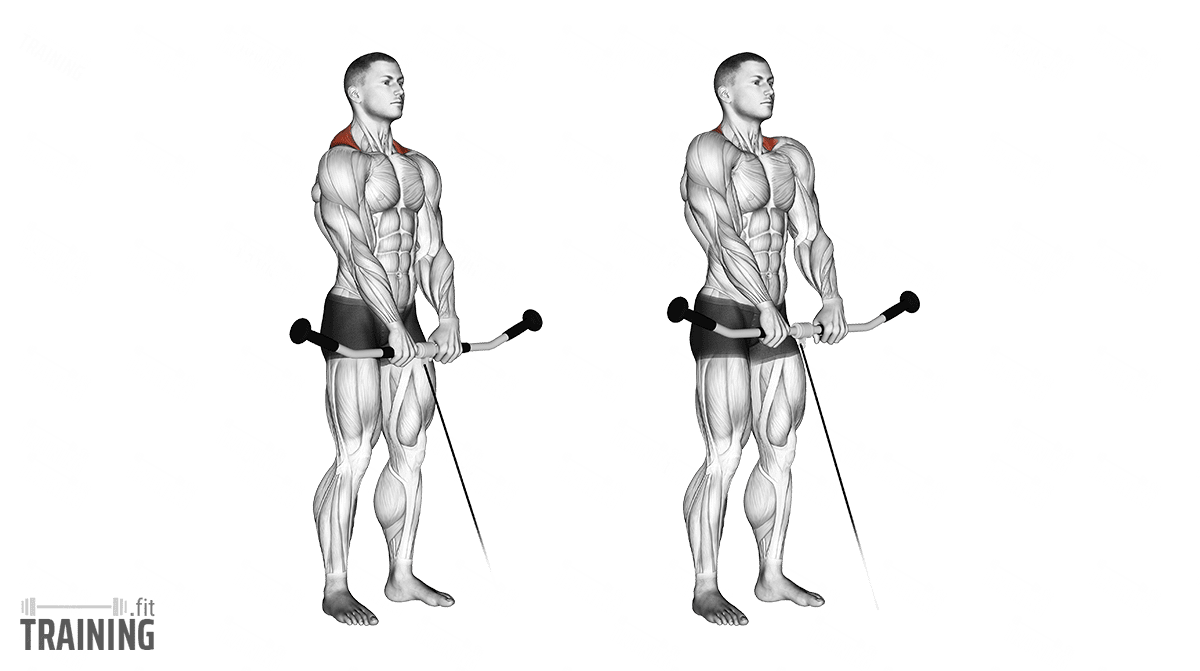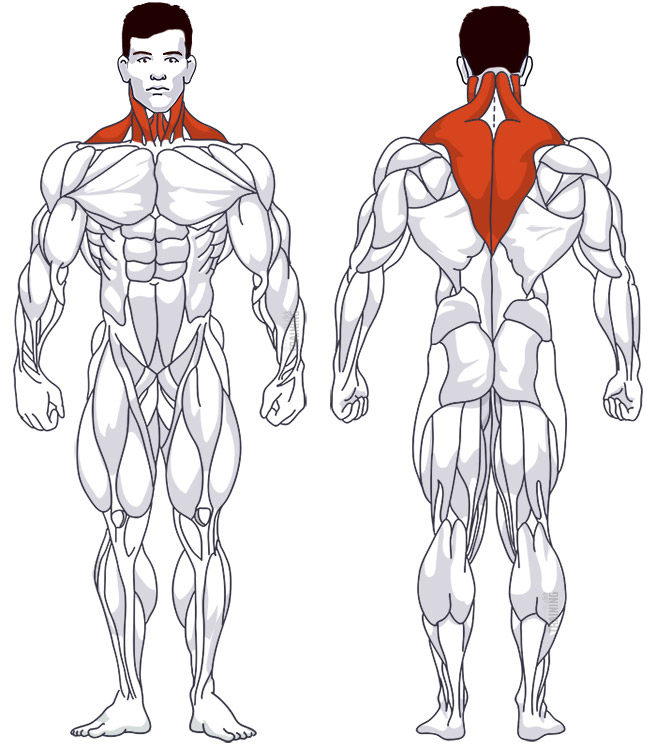Cable Shrugs
Isolation exercise, Cable pullOverview

Main muscles
- Neck: Trapezius muscle
(Musculus trapezius)
Cable Shrugs: Basics and alternatives

Involved main muscle groups:
Cable Shrugs
Cable shrugs are a variation of the well-known dumbbell shrug exercise. When you do a cable shrug, you stand with your arms extended and lift weights by raising your shoulders. This exercise focuses on isolating your neck muscles.
The key difference between cable shrugs and barbell shrugs is the constant pull of the weight forward and down. This changes the training stimulus as you’re not only lifting upward, but also backward. It’s similar to incline bench shrugs, but not as extreme. It all comes down to your personal goals.
Other exercises that target the neck include the seated row with dumbbells and the lat pulldown, which also work the upper back, shoulders, and arms.
Correct Execution
With cable shrugs, you can adjust the grip width to your preference, just like with barbell shrugs. A grip that’s about shoulder-width apart is usually recommended.
You can also experiment with different grips to find what works best for you. There’s no one-size-fits-all approach to grip, so try out different options and see what feels best for your muscles.
Video Tutorial
Step-by-Step Instructions
Attach your preferred grip to the lower attachment.
Stand with the mounted grip shoulder-width apart in front of the tower. Your arms should be extended and the grip loose, without lifting the weight.
Firmly grasp the grip, take a small step back, and pull the weight slightly away from the block with your arms extended.
Pull your shoulder blades back. You’re now in the starting position.
Raise your shoulders straight up, moving the weight on the cable. Keep your arms extended and shoulders contracted. After a brief pause, lower the weight again without putting it down on the block, and then repeat the exercise.
Common Mistakes
One advantage of cable shrugs is the constant pull down, so make sure to keep the weight in the starting position and not put it down after a repetition.
As with any exercise, it’s important to avoid swinging movements that can increase joint stress and cause jerky movements on the cable, which can be even more pronounced than with dumbbells. So, make sure to execute each repetition cleanly and controlled, without rushing.